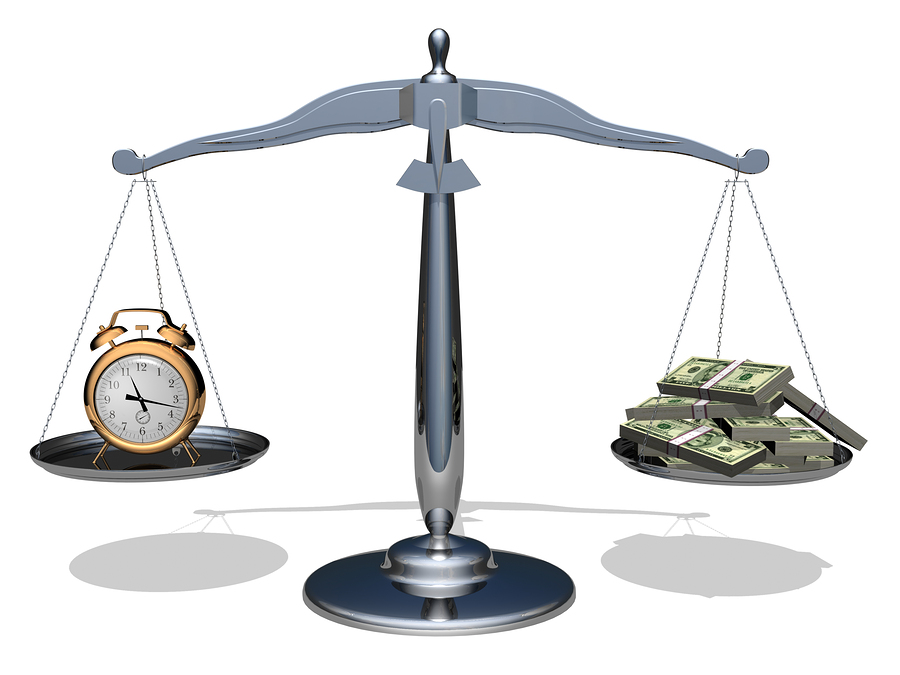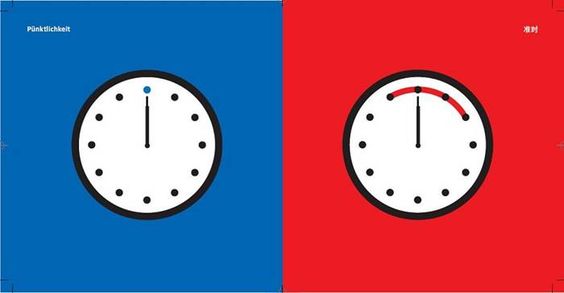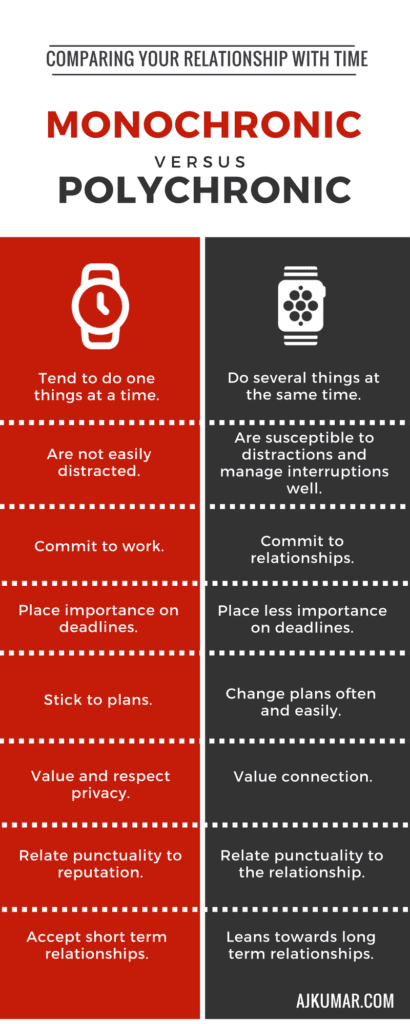“The effect you have on others is the most valuable currency you have.” Jim Carey
Attention is time, and time is currency. And I would even argue that attention is the new currency.
Why?
Because we must use our time and attention to make money. The better you are at utilizing your attention, the more money you can make, and the more time you have to leverage. When you can focus better you can manage your time more effectively. When it comes down to it, your attention is the most important deciding factor in your quality of life.
That’s why I place an extraordinarily high value on my attention as an entrepreneur. When you are responsible for making hundreds of tiny decisions each and every day, it can become a little mind-numbing. There’s a lot of thought that goes into being a good decision-maker, and a person who is able to capitalize on good decisions can move a lot faster than someone who gets stuck frequently.
In today’s world, everyone is competing and pulling at you for your attention, which makes it harder to choose. There are so many options out there, that we can’t really decide what the best way to spend our time truly is. Between checking social media, responding to an email ping, or following up to voicemail there are so many ways to distract ourselves from the current task at hand.
Attention also means who and what you are focusing on. In the grand scheme of things, what you choose to focus on is extremely important to reaching your goals.
For example, if you focus on the problem at hand and only think about how looming the project is, or how you will never get it done in time–you will be deceiving yourself into producing a negative outcome.
On the other hand, if you are realistic about the project’s deadlines and goals, but choose to seek for a solution and spend your time that way instead of focusing on the problem, you will find that you are much more productive.
Whether it’s people I spend time with or projects that I work on, I choose to spend my time doing things that fit at least two of my three criteria’s.
- I will have fun.
- I will learn something I’m curious about.
- I will make money using my time this way.
I need to have at least two of these three present in order for me to believe that it is worth it. Otherwise, I’m just wasting my time irresponsibly. I’ve had a lot of experience working on projects with people who I didn’t feel were a good fit for me, right from the get go. However, I kept working on them, until I realized that my gut was right.
As an entrepreneur, attention is value. If you work for yourself, chances are that you don’t have someone dictating what you need to be doing every hour of the day. I hope that if you work for someone else, that they aren’t micromanaging you in this way either.
Our attention is translated into two types of value: rational and emotional value.
Rational Value of Your Attention

Attention in today’s world is money. When it comes down to it, we are always using our energy (our attention) to do things. We use it primarily in the form of jobs, raising families, and accomplishing goals. Our families and even many of our career aspirations fall under the emotional category. There are also some other key things that fall into an emotional value that I will elaborate on later.
In rational terms, our attention helps us to do a job, which provides value, which means it costs money.
Since the Industrial Revolution, people have been trading hours for dollars in the form of working for an employer. But even if you are a consultant or a service provider, you can create an hourly rate that capitalizes on the rational value of attention.
In order to better understand this, ask yourself how much do you want to make in a year?
If you want to make $50,000 you’d need to work forty hours a week at $25 per hour.
If you want to make $100,000 per annum, you’d need at least $50 per hour and a minimum of forty hours per week.
If you want to create a seven-figure income, then you need to charge $500 per hour to make a million bucks. Or $1,000 per hour for two million.
Of course, you can always work more hours making less, or work less hours making more and still get the same end dollar amount. However, it all comes down to how you value your attention.
Do you have the $25 per hour mentality, or the $500 per hour mentality when you show up to work with a client?
When I’ve hired coaches at $500 per hour in the past, they delivered and they even over delivered. In fact, I was amazed at the results and insights I was receiving.
As entrepreneurs, our goal is to treat every job like a $500 an hour job and give it the emotional attention it deserves even when it doesn’t meet the rational monetary reward.
Why should you do that?
It’s important that emotionally, your customer or client feels like you are invested in their success, that way they can use their good feelings about the work that you did to rationalize the monetary purchase.
But you can’t spend all day every day focusing on jobs that don’t pay the bills. Instead, you need to value your attention like someone who is making a thousand dollars an hour. How do you do that? By getting larger projects with better companies that pay a higher dollar amount. Then, you can leverage your time by hiring skilled virtual assistants or other independent contractors to help you with the majority of the work.
This is the secret to making your time worth more. Delegating to people who have specific skill sets will save you time and money in the long run.
Every entrepreneur is an artist, so playing multiple roles is a must for creative decision making. In the beginning, I would take courses and learn how to do everything myself. Then, as I became more successful I started hiring designers, copywriters, assistants, and developers. It only makes sense that as you grow you do less. This is what I like to call ROTI–Return On Time Invested.
Traditional ROI is important for cash flow logistics, but without keeping track of your time, your energy is being wasted, which can lead to emotional drainage, and missed opportunities.
Emotional Value of Your Attention

It’s easy to understand the rational value of our attention because it correlates to money or completed objectives. On the other hand, it’s hard to value our emotions. We don’t really create any sort of metric that will help us to manage the expectations of enjoying life vs. the reality of what we feel while working on projects.
That’s a key distinction for anyone, but most importantly, it’s one that only you can decide for yourself.
That’s why this is so difficult, and it’s also why you should learn to create boundaries around your attention. You don’t need to take every meeting, or work with people who are in terrible moods, or who will actively bring you down.
All of these are subjective of course. How you value your criteria depends on your own passions and interests.
As you spend your time wisely, you’ll begin to notice yourself getting closer to your goals. Conversely, when you spend your time working on projects that drain you, or that are tedious you will begin to feel depleted, tired, and looking for the meaning behind what you are working on.
Learn to leverage your passions.
For example, if you’re interested in food and health like I was, then you may want to find clients in that space.
Naturally, the more you put into researching something, thinking about it, and taking action on it, the more you will begin to see paths towards creating it.
 I attracted a celebrity nutritionist Kimberly Snyder through my own curiosity.
I attracted a celebrity nutritionist Kimberly Snyder through my own curiosity.
I was into eating healthy. This was a few years back in 2011. Before it was overly popular to be vegan and eat turmeric. People thought I was weird for ordering quinoa or drinking green smoothies. Today, it’s the other way around and I feel better physically and emotionally because I learned how to take care of myself from a world class nutritionist while working on projects I was passionate about.
I also was interested in working with bigger clients because smaller clients were taking the same amount of time, but were paying me much less. I had done some work with Timothy Sykes who made it big by teaching people how to invest smarter.
This was an incredible opportunity because it allowed me to actually tackle some of the issues I’d ran into with Kimberly. Kimberly was a successful celebrity nutritionist but wasn’t well known herself until after we built her brand.
However, he didn’t have a solid online presence and he was looking for someone to help him to create a bigger brand platform for himself.
This meant that I could have the emotional value of trying to repeat my success with Kimberly. My attention was going towards something that I was good at, had been successful with in the past, and was able to bring to a new client who needed it.
Eager to work together, he decided to partner with me in order to help him build the education division of his brand in his target niche–Realtors.
I began helping him to create educational content, programs, and online courses that he could market to help Realtors break into the luxury market. Additionally, I even helped him to create a new service for agents to create stunning websites and establish their own brands.
Helping Realtors change their lives and the lives of their families is highly rewarding and helped me to receive an emotional return on my investment of my attention.
I believe that helping realtors do a better job, is directly helping out the homeowners. The transaction of a home has over 200 purchases that occur within the first year, that means that we can directly influence the economy to some degree and make the home buying and selling process easier for everyday people. This is how you can use emotional value to feel rewarded in the work that you do.
How To Use Both Rational and Emotional Value

So if your attention is both rational and emotional what exactly does that mean?
Your attention is something that can either help you to propel rapidly through your work day, or it can drag along while your to-do-list only piles up.
That means that your emotions actually have a direct impact on your rational value. And when both are working in tandem, that’s when you see the best results–meaning you are rewarded financially and you are also fulfilled emotionally.
Leveraged attention is the result of taking advantages of psychological hacks, reframing your environment and leveraging your mental perception to achieve your desired outcome.
However, when you are really wanting to make an impact you need to figure out how to make your attention have a bigger impact.
When you are working for $500 an hour, that hour has a big impact on your finances. On the other hand, when you are working for $50 an hour you aren’t leveraging your time as well as you could be. Most of the time this isn’t your fault, it simply comes down to not being able to leverage your time well enough to provide the rational value that you need.
But what if you work for a nonprofit, and the work is extraordinarily rewarding? In this case, you are actually making more than someone who earns more but enjoys their time less. This is one way that you can balance out a lower earning potential–by doing work that you care about more.
When you find the sweet spot of your passions and are able to use them to make money you’ve essentially won the lottery. Every hour you put into your projects is earning you an emotional and financial currency exchange. Your attention is being put to its fullest potential and you will most likely be happier as a result.
When you are able to leverage your time you can leverage your attention and make the most of your ability to use your attention to feel happier and become wealthier.
To support this idea, I learned about a concept of time that organized the way we focus our attention based on two approaches: monochronic and polychronic.

The monochronic system focuses mostly on doing a singular task at a time, which aligns with the notion of the rational value of attention. Under the monochronic organization of time, cultures strive to focus on accomplishing one task at once. The end goal is important, and that’s all that really matters. Societies based on monochronic systems don’t place much value on interpersonal relations, unless they can help get the task at hand done faster. Monochronic is popular in Western cultures, predominantly.
It’s opposite is referred to as polychronic, which focuses more on teamwork, flexible schedules and things happening simultaneously. This is for the multi-taskers out there, and aligns with the notion of the emotional value of time. It’s primarily found in Eastern societies. It is very people oriented, and it fluctuates as individual tasks often change and flow with the feelings of the day.
The best approach to maximize your attention is to perform optimally under both scenarios. If you can be focused on a single task, you are more likely to get it done. When you are more efficient and effective you can smoothly navigate between multiple tasks. Project changes, client hurdles, and other input can throw off your schedule, making it hard to manage multiple projects, people, and open ended deadlines.
Social Media: The Attention Magnet

At some point in the past decade, social media grabbed us and isn’t letting go. It captures our attention and whether we want to admit it or not, it works. Social media generates more buzz about business, your neighbor’s lost dog, and world affairs. It also makes it extremely easy to get feedback, and spread the word about your art.
I mean where else can you network with thousands of people all in one place?
Every time you post on social media you are getting a few seconds of your follower’s attention. It’s such a powerful tool, is your content worth their attention?
Researchers have estimated that the average person will spend more than five years of their lives on social media based on these projections. That may sound like a lot, but think about how quickly you are to look up a restaurant review, check out a blog about an upcoming movie sequel, or download a podcast about a new diet.
When you want to become a successful entrepreneur, you stop thinking about attention in terms of micromanaging every detail, and start acting in ways that are congruent with who you are and what you need to do to become who you want to be. Social media can help you to direct your attention towards outreach that connects you with people all over the world.
Every time someone checks out your website or Youtube channel, you are getting their attention. And the best part is that they can watch, read, or listen to your material without you having to be present.
A phone call or business meeting takes time–which is attention. But when you have evergreen content online, it stays there for night owls, foreign fans, and early birds alike to visit.
This means that leveraging social media is a great trade in terms of your ROTI. You trade some of your attention to create content, and you have the potential to have thousands of fans reading your content while your attention is focused on other things.
Working online and creating digital products, is the greatest way to generate passive income. And passive income is the fastest way to truly raise the value on your attention. Imagine, if your income wasn’t tied to your hours worked. What if you could work really hard to build great products, or produce amazing content that allowed you to work just a handful of hours afterwards? Successful entrepreneurs know that using the power of social media is one of the best ways to generate wealth, and it can have a lasting impact on your ability to have more free time by helping you to create passive income.
Even if you aren’t active on social media, or don’t have many followers, you can still begin creating awesome content. Great content is what you need to get a large following. So many people think that they need to get hundreds of thousands of people to make their online dreams come true. In reality, many successful people have done it with just a few hundred. Once they proved that their information was high quality and that their products got results for their customers, they were able to grow their brands and create the type of followings that we all seek.
Remember, quality is more important than quantity, so get started today!
Make the most of your attention by focusing on big ticket items that will move the ball forward in terms of rational value. But don’t forget about your emotional state. If a project moves you, jump to work on it. But if it bores you to tears, maybe you should pass on it. Your emotional reward will influence your dopamine levels and your ability to focus and feel good about the accomplishments you produce, so don’t underestimate the value of finding work you truly enjoy.
When you are able to find the balance between the emotional and the rational values of your attention, make sure that you are creating content in the form of blog articles, videos, podcasts, and social media posts that can work for your brand while you sleep.
Make the most of your business, by making the most of your time and your attention.



4 Responses
This is best article I ever seen. The points you mention about attention is really good. I wrote down all points and use in my life. Thanks for share.
Awesome! I’m glad to hear that
Hi Aj,
superb article .it shows the homework that you had to create this piece of content.
I have a doubt AJ when I checked your graphic on monochronic and polychronic I have a character that is mixed among both of it (LOL)
Thanks! The more thorough I write about these topics, the easier it is for me to apply it in my own life too.